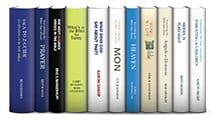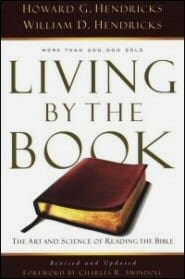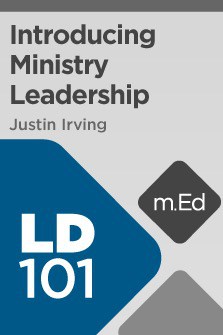Whether you’re choosing a new Sunday school curriculum or writing one from scratch, consider following these four steps as a guide to get you started.
- Pray
- Choose a curriculum
- Find supporting resources
- Share with teachers
If you truly want to write a brand-new Sunday school curriculum, you might start by first adapting preexisting curriculum to get your feet wet. After doing that a few times, you’ll have a better sense of what works and what doesn’t, and you’ll be in a good place to write your own.
1. Pray for guidance
The true power of Sunday school and small groups isn’t in the amount of study we do, the books we rely on, the quality or quantity of volunteers, or our personal charisma. If we want to see lives changed, then we must rely on the Holy Spirit. By beginning the process of building a Sunday school curriculum in prayer, you express your utter dependence on God to be the true source of guidance in your planning.
- Logos Blog: Sermon Preparation Is 20 Hours of Prayer
- Logos Blog: Are We Trying to ‘Cast Out Demons without Prayer’?
- Logos Blog: 4 Easy Ways to Breathe New Life into Bible Study
2. Choose a Sunday school curriculum
Here are three questions to ask as you select a Sunday school curriculum:
- Who are you teaching? Every church and every audience within the Church is different. What spiritual challenge is your congregation facing? If you are preaching to a specific demographic within the Church, such as teenagers, consider the unique challenges they may be facing, and select your topic accordingly.
- When are you teaching? Often the Church calendar will provide a direction for your preaching. A study on “New Life” may be appropriate in the spring. If Halloween is just around the corner, you might consider teaching what the Bible really says about the supernatural.
- Why are you teaching? If you find yourself drawn to a specific topic, such as prayer, ask yourself why. Why has this topic piqued your interest? By digging in a bit more, you may identify multiple facets of the issue and choose a curriculum based on that single idea.

Baker Bible Study Collection (11 vols.)
Want to dig in on what Scripture really says about any topic? This collection guides your group through the Bible’s teaching on parenting, heaven, and angels—and it even has a study on the most misused verses in the Bible.

Rick Warren’s Bible Study Methods
Take your group through a Bible study without an accompanying study guide using pastor Rick Warren’s instructions on studying the Bible. The methods in the book walk you through how to study the Bible in depth so you can more effectively teach it in a small group setting.
3. Find supporting resources
Unlike preachers developing a sermon, people who teach Sunday school are often self-taught theologians. Sunday school teachers and volunteers may not need to know all the deep theology behind what they’re teaching, but it’s important to know basic Bible study skills and resources available to easily find answers.
Biblical Surveys

Living by the Book
If you’re like many people, you’ve probably felt at one time or another a twinge of guilt about not getting full enjoyment out of personal Bible study time. You may wonder how some people can percolate with enthusiasm over the same passages you’ve read time and time again—unmoved. What’s their secret? Howard Hendricks knows that the “secret” is really no secret at all. It is simply a case of practicing effective Bible study methods.

Lexham Geographic Commentary
The Lexham Geographic Commentary on the Gospels delivers fresh insight by paying attention to an often overlooked component of the Gospel stories—their geographical setting. Written by a team of scholars with on-the-ground experience in Israel, the Geographic Commentary lets you see the land through the eyes of the disciples as Jesus uses the surrounding landscape as the backdrop for his teaching.
Faithlife Study Bible
The Faithlife Study Bible (FSB) helps you explore Scripture in depth with your Christian community. The study notes, maps, and media in the FSB work with several popular Bible translations. And with apps for your mobile devices, you can take deep Bible study anywhere you go.
4. Share with your teachers
If you’re leading other Sunday school leaders, it’s important to take time to share your spiritual and leadership insights with them. Leaders who know how to study the Bible for themselves will be able to effectively teach new curriculum.
A few quick tips:
- Set clear expectations. Whether you want teachers to stick to the curriculum or to embellish from their own personal study, make sure teachers know what you expect.
- Share each lesson early. Few things can make teachers more unappreciated than sending them Sunday’s lesson on Saturday night. Give them plenty of time to prepare—send as early as you can.
- Logos Blog: Bad Bible Interpretation Really Can Hurt People
- Faithlife blog: Get a Deeper Bench: How to Raise Up New Ministry Leaders

Mobile Ed: LD101 Introducing Ministry Leadership
In addition to providing surveys of contemporary leadership theories and obstacles to effective leadership, Dr. Irving explains the uniquely Christian approach to leadership, offering biblical examples from both the Old Testament and the New Testament. This course also demonstrates how the radical nature of servant leadership can transform your ministry.
Conclusion
Ultimately, the Holy Spirit is the one who changes lives and hearts. But he chooses to use our efforts as we share his Word. As you dig into Scripture and begin building Sunday school curriculum, you may feel ill-prepared and under-equipped. Take heart, knowing that God delights in showing himself strong through those who feel weak. As the apostle Paul said of his own ministry, “When I am weak, then I am strong” (2 Cor 12:10).





